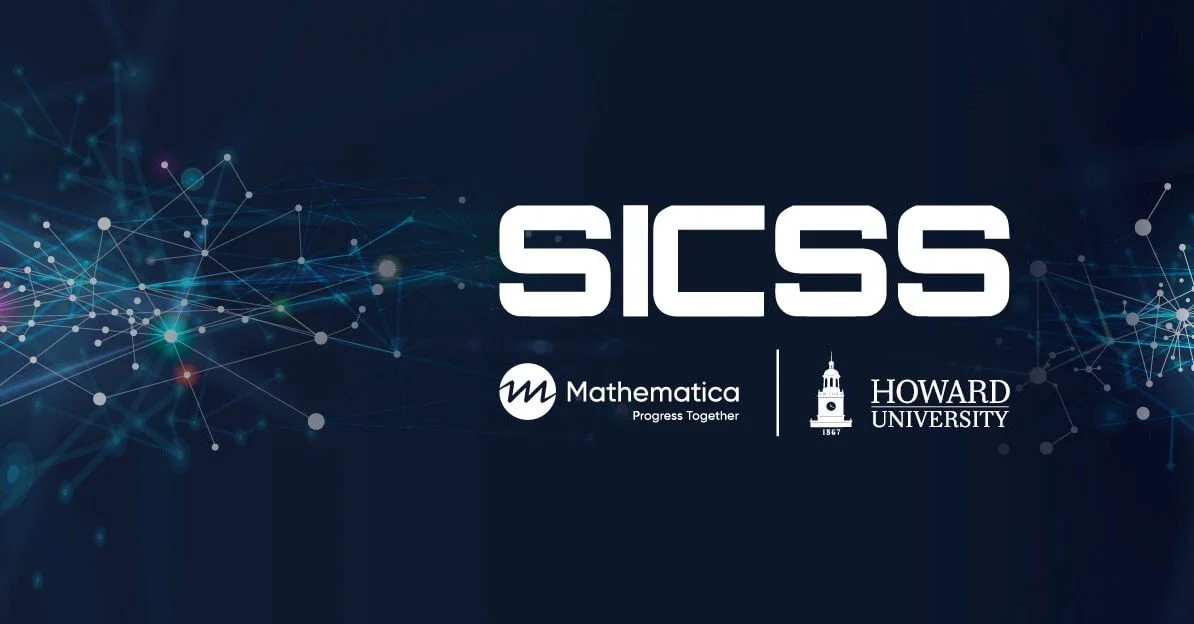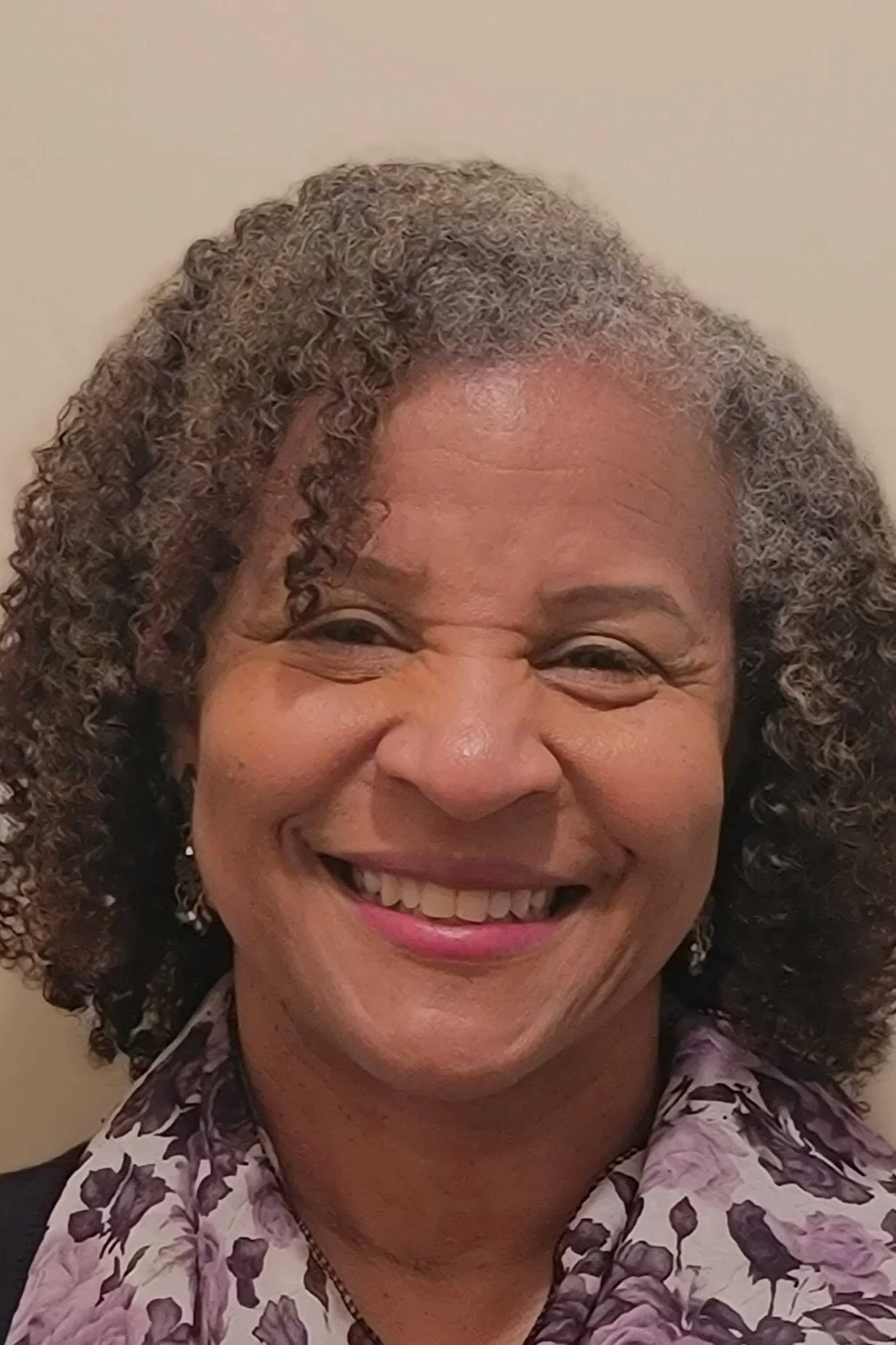UDC Assistant Professor Talks “Drinking from the Fire Hose” during SICSS-Howard/Mathematica 2022
This blog is part of the 2022 series “The Future of Computational Social Science is Black” about SICSS-Howard/Mathematica, the first Summer Institute in Computational Social Science held at a Historically Black College or University. To learn more about SICSS-H/M’s inaugural start, read last year’s blog “Welcome SICSS-Howard/Mathematica 2021” or our first blog “Uncovering new keys to countering anti-Black racism and inequity using computational social science.” If you are interested in applying to participate in SICSS-H/M 2023, check out our website.
I was so excited and honored to be selected to participate in the 2022 Summer Institute in Computational Social Science sponsored by Howard University and Mathematica (SICSS-Howard/Mathematica). I can’t say that adding “computational” expertise to my work as a faculty member at the University of the District of Columbia was something I planned, but when the opportunity presented itself, I jumped at it with cautious optimism.
Why was this experience so powerful? The institute focused on creating a culturally sensitive training space that demonstrated inclusion and honored the multi-race/gender/ethnicity make-up of our cohort. Additionally, the online nature of the institute allowed for participation from different countries, allowing all of us to stay home during this Covid-unsure time. Our navigator, Naniette Coleman encouraged us to set our intention every day, specifically telling us we should decide whether to hold on for dear life and just take everything in. She called it “drinking from the firehose” or perhaps increasing our abilities in something like the R programming language, or selecting another intention that was all our own. She reminded us every morning and early on, I decided to “drink from the fire-hose!”
During the first week, I definitely experienced this after 7 straight days of training. However, these days included an incredible opportunity to ask questions to the presenters whose videos we reviewed as a part of our pre-work. Moreover, each day we had the chance to be in small groups with different individuals, and by the end of the institute, we knew everyone in the cohort by their first name. These sessions allowed us to learn from each other and take advantage of those of us who had more expertise in R and others, like me, whose expertise was in social science. These intentional pairings accelerated our learning, and my limited R experience increased greatly.
This was in part due to SICSS’ partnership with Howard University and Mathematica. Not only did SICSS provide a platform so that we could learn and ask questions, but Mathematica provided professional data science TAs from their organization to assist us in applying computational tools. These selfless, kind, and deeply knowledgeable individuals gave us judgment-free support, allowing us to admit where we needed assistance and helping celebrate our victories (no matter how small). Though the path I chose was drinking from the firehose, the institute didn’t leave me to my own devices. We were provided ways to fight feelings of inadequacy with thoughtful, multi-layered support.
Another strength of the SICSS-H/M program was the thoughtful web presence design. All the videos, schedules, assistance, and follow-up sources were easily accessible to keep everyone on track. This included critical R and Github resources. Another unique SICSS-H/M site feature was the “cheat sheets” for each training milestone, which facilitated note-taking during presentations and provided a basis for continued learning. There were multiple resources for each of the training goals so that participants could select the resource that matched their learning style. Our Slack channel allowed access to all the SICSS sites and facilitated small group discussions for group projects.
Another factor, which was the most critical part of the institute for me, was the selection of academic and industry professionals by SICSS-H/M and those leaders’ displays of commitment to us. Again and again, speakers and contributors assembled to showcase the amazing work of individuals already engaged with data in culturally sensitive ways to build on data science and social sciences practices. I was blown away by the speakers and their willingness to extend themselves to help our cohort. Though they are giants in their field, they displayed approachability that supported the institute's culture of inclusion. The welcomeness they displayed seemed to soften the invisible “inadequacy” barriers encouraging us to keep learning. Also, we participated in a joint session with scholars from three African countries - Cameroon, Nigeria, and South Africa - working to achieve similar research objectives at their SICSS sites, hearing obstacles and foci from their unique perspectives.
This experience was above all else, a safe space for learning. There were tools to manage learning issues such as dwindling engagement (we were getting tired) and the discomfort of failure (we were struggling with getting R to work), as well as giving us tools to establish a realistic, future learning agenda. I now have a roadmap to incorporate computational tools into my social science research, teaching, and practice. Most of the tools I learned are immediately applicable to my work because I can incorporate those tools purposefully. During the institute, many of the “experts” in computational social science admitted that learning was a trial and error process and that they learned the most from the community of practitioners who make knowledge available to everyone.
Naniette Coleman
I am most excited by the fact that I am now a part of the SICSS and SICSS-Howard/Mathematica families. As a part of the Howard University cohort, we are all also able to further our research with funding for a project we started during the institute. This is an exciting opportunity that many of the other sites do not have this year. As an alumna who can contribute and support future cohorts, I am looking forward to submitting a proposal and supporting the site in the coming years.
My last observation is about the founder and leader of the SICSS-Howard/Mathematica site Naniette Coleman and the amazing team she assembled to facilitate and deliver the program. Naniette is a force of optimism, compelling us to learn, share and get everything from our experience. Her energy each day was sustaining and her compassion was reflected by her enthusiasm for each experience that was presented. We could tell that the presenters share our view of Naniette, and there was ample evidence that they supported her amazing vision of the program. Special thanks also goes out to Howard University’s support for the program and its partnership with Mathematica. Through presentations from its principals, we had the benefit of knowing how much both organizations value the program and our participation in it.
For more information about SICSS-Howard/Mathematica, check out our website, follow us on Twitter, like us on Facebook, and join our email list. Apply now!
About the author
Andrea Adams PhD, JD, MBA, is an Assistant Professor of Crime, Justice, and Security Studies at University of the District of Columbia whose research is focused on data privacy, crowdsourcing, and gender-based violence. Andrea teaches ethics in the Criminal Justice Bachelors/Homeland Security Master’s program. Andrea is a Board Advisor for Red Dot Foundation, a crowdsourcing smartphone app that maps gender-based violence. Andrea was a 2022 participant in SICSS-Howard/Mathematica.



